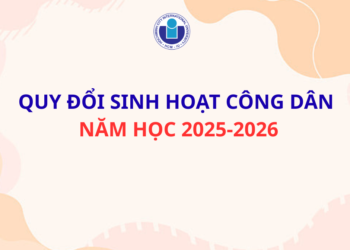SEMINAR ANNOUNCEMENT
“Ten Things You Did Not Know About Memristors”
Respectfully to: Lecturers, Researchers, Staffs and Students
The Office of External and Public Relations would like to invite lecturers, researchers, staff and students to attend the seminars delivered by Prof. Leon Chua, University of California at Berkeley, USA:
- Time: 10:30am – 11:30am, December 08, 2015
- Venue: A2.608
-
Abstract:
The memristor, short for memory resistor, is the fourth fundamental circuit element. Its invention by Professor Leon Chua in 1971 explained hysteretic effects that had until then been considered random phenomena. Memristors were proposed as the right stuff for building low-power, laptop size, adaptive brain-like computers that could outperform existing supercomputers in many tasks, such as face recognition and dynamic associative memory. Recent advances in nanotechnology are capable of taking memristors to the next level where they can replicate the complexities of the brain. The memristor behaves like a pipe whose diameter varies according to the amount and direction of charge passing through it. If the flow of charge is stopped, the pipe's diameter stays the same until it is switched on again, remembering the amount of current that has passed through it. This lecture presents 10 new results relevant to an in-depth understanding of the properties and potential applications of memristors.
-
Biography:
Professor Leon Chua received his MS and PhD degrees from the Massachusetts Institute of Technology and the University of Illinois at Champaign – Urbana. Since 1970, he has been at the University of California, Berkeley, where he is currently a Professor of Electrical Engineering and Computer Sciences. He was the first recipient of the IEEE Gustav Robert Kirchhoff Award in 2005 and was awarded the IEEE Neural Networks Pioneer Award in 2000. Elected an IEEE Fellow in 1974, he has received many international prizes, including the IEEE Browder J. Thompson Memorial Prize, the IEEE W. R. G. Baker Prize, the Frederick Emmons Award, the M. E. Van Valkenhurg Award (twice), and the 2005 Francqui Award from Belgium. He has been awarded seven USA patents and 14 Honorary doctorates from universities in Europe, Japan and Hong Kong. He was elected a foreign member of the European Academy of Sciences and the Hungarian Academy of Sciences. In 2010, he was awarded a John Guggenheim Fellow and The Leverhulme Trust Visiting Professorship. In 2011 he was awarded a Royal Academy of Engineering Distinguished Visiting Fellowship within Imperial College London.
The participation of all lecturers, researchers, staff and students are highly appreciated.
————————————————————–
THÔNG BÁO HỘI THẢO
“Mười điều bạn chưa biết về Memristors”
Kính gửi: Cán Bộ – Giảng Viên – Sinh viên
Phòng Quan hệ Đối ngoại trân trọng kính mời Quý thầy cô, nghiên cứu viên, cán bộ và sinh viên đến tham dự buổi hội thảo của GS. Leon Chua, trường Đại học California at Berkeley, Hoa Kỳ, thông tin chi tiết như sau:
- Thời gian: 10:30am – 11:30am, thứ 3 ngày 08/12/2015
- Địa điểm: A2.608
- Nội dung tóm lược:
The memristor, short for memory resistor, is the fourth fundamental circuit element. Its invention by Professor Leon Chua in 1971 explained hysteretic effects that had until then been considered random phenomena. Memristors were proposed as the right stuff for building low-power, laptop size, adaptive brain-like computers that could outperform existing supercomputers in many tasks, such as face recognition and dynamic associative memory. Recent advances in nanotechnology are capable of taking memristors to the next level where they can replicate the complexities of the brain. The memristor behaves like a pipe whose diameter varies according to the amount and direction of charge passing through it. If the flow of charge is stopped, the pipe's diameter stays the same until it is switched on again, remembering the amount of current that has passed through it. This lecture presents 10 new results relevant to an in-depth understanding of the properties and potential applications of memristors.
- Tiểu sử của Giáo sư Leon Chua:
Giáo sư Leon Chua nhận bằng Thạc sĩ và Tiến sĩ của Viện Kỹ thuật Massachusetts và trường ĐH Illinois at Champaign – Urbana. Ông công tác tại trường ĐH California, Berkeley từ năm 1970. Hiện nay ông đang giảng dạy tại khoa Điện tử Viễn thông và Kỹ thuật Máy tính. Ông là người đầu tiên nhận giải thưởng IEEE Gustav Robert Kirchhoff Award vào năm 2005 và được trao tặng giải thưởng IEEE Neural Networks Pioneer Award vào năm 2000. Ông được đề cử giải thưởng IEEE Fellow năm 1974 và nhận được nhiều giải thưởng Quốc tế, trong đó có IEEE Browder J. Thompson Memorial Prize, IEEE W. R. G. Baker Prize, Frederick Emmons Award, M. E. Van Valkenhurg Award (2 lần nhận giải), và 2005 Francqui Award của Bỉ. Ông được trao 7 USA patents và 14 lần nhận Bằng Tiến sĩ danh dự của các trường ĐH tại Châu Âu, Nhật Bản và Hồng Kông. Ông đã được bầu chọn là thành viên của Viện Hàn Lâm Khoa học Châu Âu và Viện Hàn Lâm Khoa học Hungary. Trong năm 2010, ông được trao giải thưởng John Guggenheim Fellow và The Leverhulme Trust Visiting Professorship. Trong năm 2011 ông được nhận giải thưởng Royal Academy of Engineering Distinguished Visiting Fellowship tại trường Imperial College London.
Rất mong sự hiện diện của Quý thầy cô, nghiên cứu viên, cán bộ và sinh viên tại buổi hội thảo.

![[HTTT] – Chương trình giới thiệu Học bổng INTENSE 2026](https://iuoss.com/wp-content/uploads/2026/02/642442045_1513746033517999_1152248474831020577_n-350x250.jpg)



